Some of Inverness’s busiest junctions will become even more congested if major changes to Academy Street go ahead, a consultant has warned.
Highland Council is progressing plans to drastically cut the number of vehicles on one of Inverness’s main thoroughfares.
The goal is make the city centre more welcoming for walkers, cyclists and wheelchair users.
But opponents of the plans have warned that it will severely impact businesses.
The council commissioned consultancy firm WSP to carry out assessments of the potential impact to traffic and the local economy.
And the findings have raised some concerns.
What are the Academy Street traffic assessment findings?
Supporters of the project will point to a couple of positive headlines.
Firstly, the changes will reduce the number of passenger cars on Academy Street to fewer than 2,000 a day.
That was the target figure from the very start.
The assessment also states for both the morning and afternoon peaks: “It is believed that the majority of the network will continue to operate within capacity post the proposed design for Academy Street.”
That sounds like good news – but the use of the word majority suggests that some of the network will be struggling.
And Harbour Road appears to be the place that will be hardest hit.
It will “approach [its] theoretical maximum capacity”, which will lead to “regular queuing during peak periods”.
The Harbour Road and Millburn roundabouts are already operating over-capacity and will be under more pressure.
There is better news at the Shore Street roundabout. It is currently operating at over its capacity but the changes will result in it performing “slightly better” than it is right now.
In the afternoon peak, there will be “short-lived queuing” at Kenneth Street, Castle Street and Culduthel Road.
Traffic findings based on ‘worst-case scenario’
The findings won’t be a surprise to anyone who’s been caught in an Inverness traffic jam lately.
Removing one of the main ways for people to get across the city centre was always bound to cause issues.
But Inverness city leader Ian Brown has stressed that the findings are based on a worst-case scenario.
In that scenario, no car users change their behaviour and seek another mode of transport.
Simply put, the findings show that there needs to be fewer cars on the road for this project to succeed.
Councillor Brown said: “It was an important exercise to commission independent economic and traffic impact assessments into the proposed design of Academy Street, which we do acknowledge has caused concerns amongst local businesses and residents.
“I would urge everybody to consider that, as a gateway to the Highland capital, Academy Street plays a significant role in welcoming visitors from near and far.
“The proposed design, in conjunction with other flagship projects currently being undertaken such as Inverness Castle, will enhance the city centre and make Inverness a prime destination.”
What about the economic impact assessment?
WSP’s report says that the value-for-money of the scheme is “poor”.
Its benefit-to-cost ratio estimates that for every £1 spent, there will be a return of 51p.
But given that the changes are not being made as part of a money-making scheme, that doesn’t seem particularly surprising.
The report itself states: “A negative monetised return is not uncommon based on the approved methodology and traditional practices used to assess transport schemes like this which prioritise car travel.
“The fact that the benefit-to-cost ratio does not include non-monetised benefits makes it more likely to result in [this] figure.”
The report found that there would be a wider economic impact, generating between £1.5m and £4m.
The benefits would be driven by additional footfall in the city centre.
What happens next with Academy Street?
The proposed design will now move to a traffic regulation order.
That involves another public consultation that will last between eight and 10 weeks.
Those results will be considered by the Inverness city committee and if agreed, it will be taken forward and the council will apply for funding to begin construction.
That construction is currently pencilled in for the summer of 2025.
However, the picture could change dramatically next week.
The owners of the Eastgate Centre have lodged a legal challenge in the Court of Session over the controversial proposals.
They are seeking a judicial review of the council’s decisions.
The case is set for a hearing on May 3 and if the challenge is successful, it could be back to the drawing board for the council’s plans for Inverness city centre regeneration.
For more Inverness news and updates join our local Facebook group.
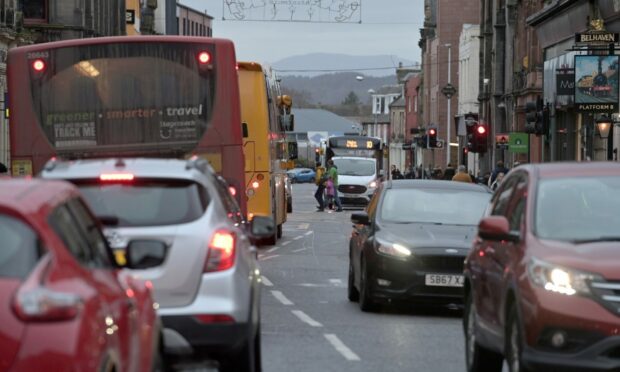
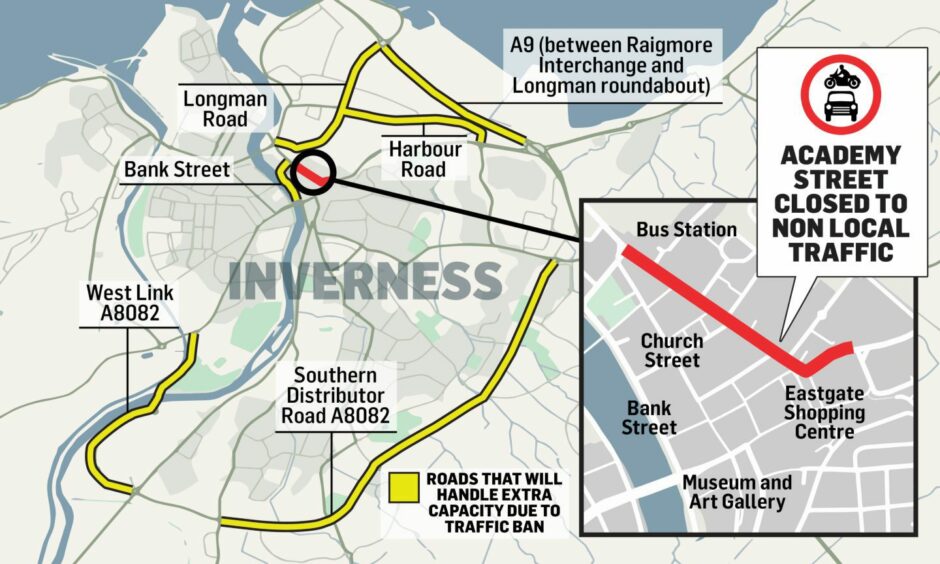
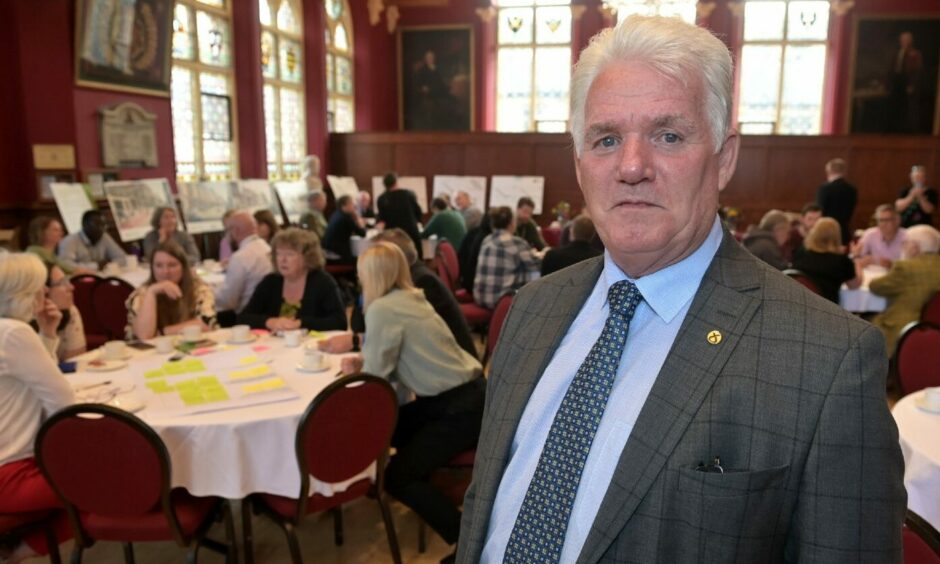
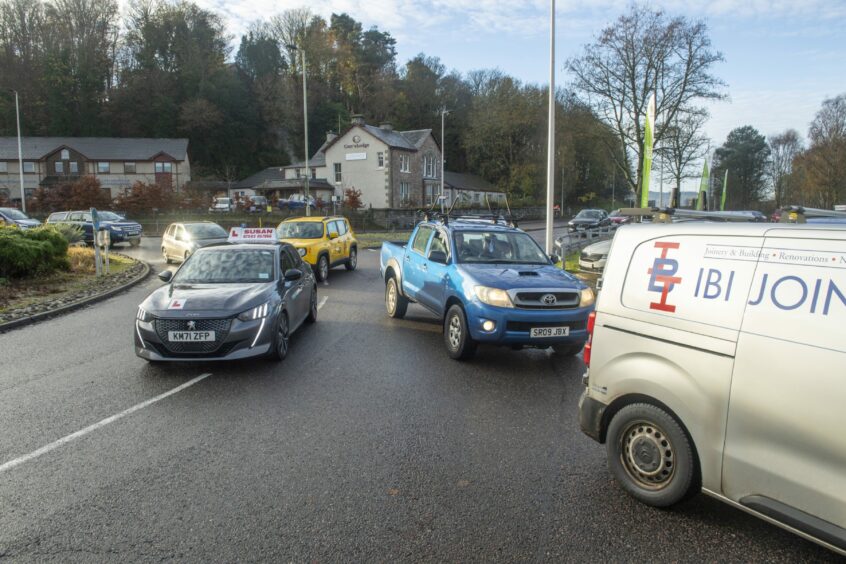
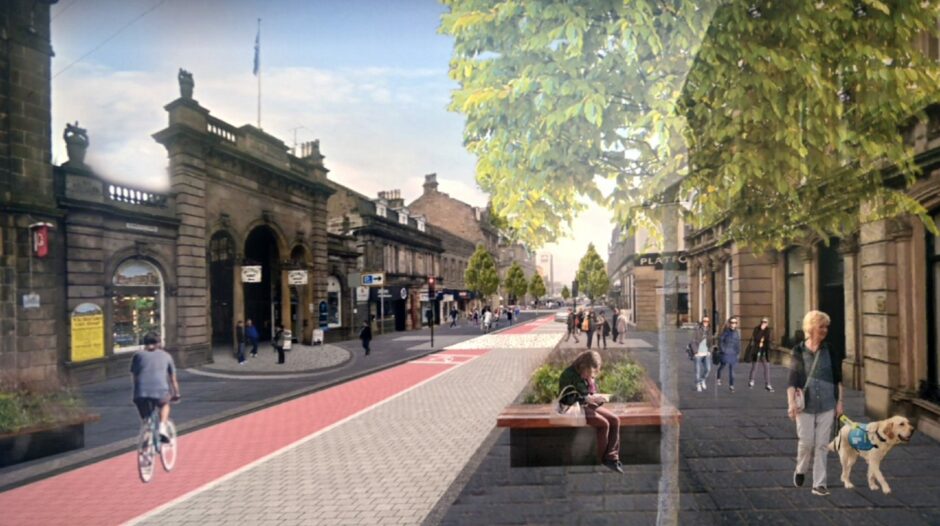
Conversation